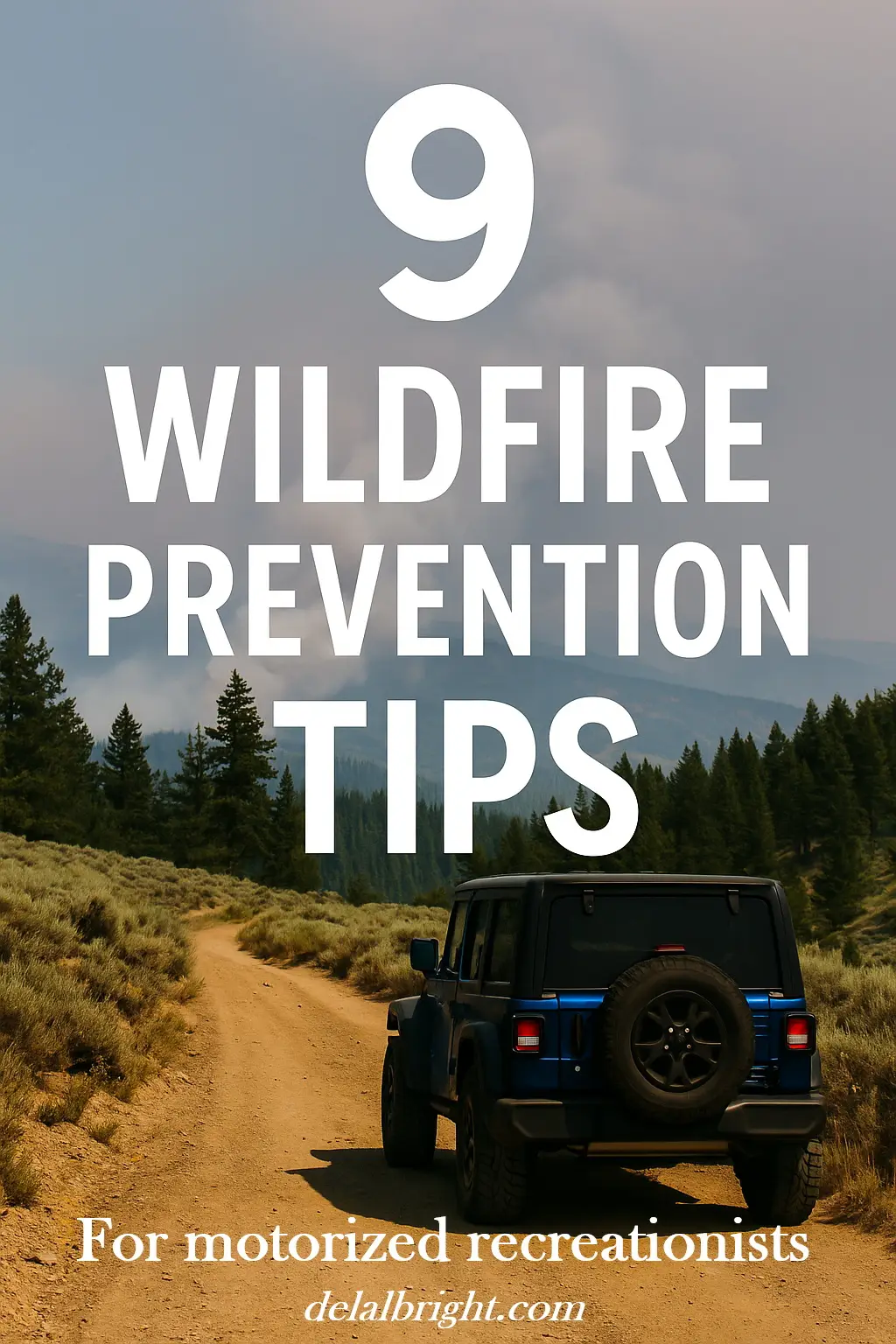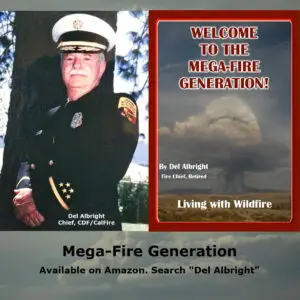Nine Wildfire Prevention Tips for Motorized Recreationists
By Del Albright, Retired Fire Chief
If you enjoy summer adventures in the great outdoors—especially behind the wheel of a Jeep, OHV, or other motorized rig—wildfire prevention is YOUR responsibility.
Our friends in public land management agencies with years of fire service experience remind us that one careless move can turn your ride into a disaster headline. That is something none of us want and for sure, our backcountry needs no more Mega-Fires. I have 26-years of a fire career behind me and I assure you these simple nine tips will help prevent forest fires!
Here are nine tips to keep your trails, camps, and public lands safe this fire season.
1. Mufflers & Spark Arrestors
No excuses here—equip your rig the right way. Bad mufflers, or a missing or faulty spark arrestor, can throw a blast of hot carbon or sparks capable of igniting a wildfire. Check it. Replace it if needed.
2. Stay on the Trail
Most trails are cleared enough that traveling them safely isn’t a problem—if you stay on them. Avoid pulling over into dry grass, especially with hot exhaust parts underneath. If you must stop, find a bare or rocky area. Pay particular attention when traveling in groups where you stop for 10-100s. Please don’t force your group to pull over where they don’t belong.
3. Campfire Safety
If campfires are allowed (and that’s a big if during fire season), follow your permit rules to the letter.
Avoid campfires on windy days.
Clear a wide space around the fire pit (as per your permit).
Keep water, a shovel, and preferably a fire extinguisher nearby.
Never leave a campfire unattended.
If you find an unattended fire, put it out and cool it with water until it’s cold to the touch.
Pro Tip: bring a propane campfire during summer months that you can safely turn on and off. Wood fires can be disastrous if not handled correctly.
Go here for more on campfire safety.
4. Report Unexplained Smoke
If you see smoke, act. Have a way to communicate—radio or cell—and call it in. Early detection can save entire communities. Ham radio and GMRS radios are the way to go these days.
5. Obey Land Manager Rules
If the Forest Service, BLM, or your local recreation area has fire restrictions, follow them. Don’t think a “small” illegal campfire is harmless—it’s not.
6. Defensible Space at Your Cabin
If you own property or a cabin in the wildlands, clear your defensible space as required by your local fire agency. A wildfire that starts on your property can devastate public recreation areas.
7. Welding Precautions
Trail repairs happen, and I keep an under-hood welder in my Jeep for emergencies. But welding sparks start fires—fast.
Clear the area first.
Post a fire watch.
Keep shovel, water, and extinguisher within reach.
- Don’t forget that grinding your welds also makes sparks; so be cautious and observant. Have someone watching you work.
8. Smoking
Smoke only in cleared areas or inside your vehicle. Use a sealed container or water cup for butts—never toss them on the ground.
9. Fireworks
Just don’t. Fireworks are illegal in most forested areas and a bad idea anywhere during fire season. Follow the law—and use common sense.
Share the Message
Help spread the word—share these tips with your fellow recreationists. Together, we can keep our trails, camps, and public lands open, beautiful, and fire-free.


